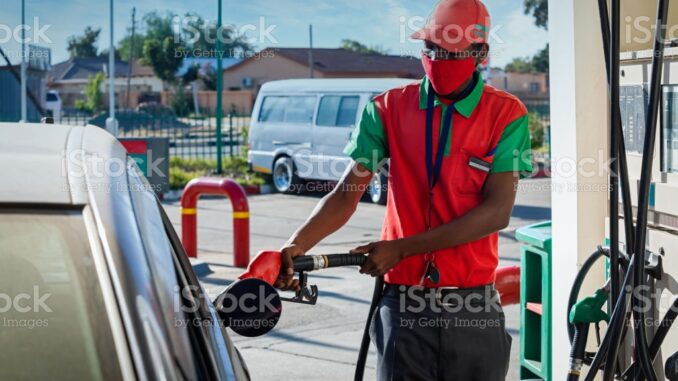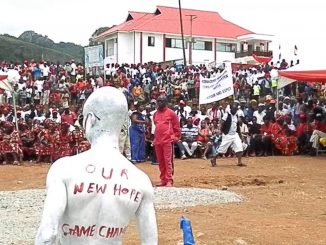
Amidst Excruciating Hardship; Fuel Price increases again
Sierra Leone’s decision to deregulate the petroleum industry, as recommended by the International Monetary Fund, has been resisted by sections of the population including civil society organisations.
Last week, the government removed a fuel subsidy and effectively increased fuel prices from LE 6,000 ($0.75) to LE 8,000 ($1) for petrol, diesel, and kerosene.” This is an excerpt from a story written in 2018.

Three years on the story has not been substantially different.Fuel rate in the country has increased yet again after the latest round of fuel price hikes by oil marketing companies (OMCs).
Petrol and Diesel are now retailing at Le10,000 per litre from Le 9,500. Comparatively, as of August 2018 pump price of fuel was increased from Le 7,000 to Le 8,000 per liter and was sold at an average price of $ 72.67 per barrel, while in August 2021 pump price is now sold for Le 10,000 at an average price of $ 72.26 per barrel.
This latest rise in price which is happening for the first time in the country’s history (change of fuel price six times in one year) is bound to have a widespread crunching impact on citizens and the overall economy.
It is a devastating impact on the economy comes at a time when the economy is still recovering from the Covid-induced crisis.
According to a government representative who wanted anonymity the increase in the pump price of fuel is a result of the combined effects of PLATT (a source of benchmark price assessment in the petroleum industry) and foreign exchange.“If the increase was not made, two categories of people will be at a loss. If we decide not to increase, the government will lose revenue, and the Oil Marketing Companies will lose money. If we don’t want OMCs to lose money, then the pump price has to increase,” said the government official.He further revealed that if the government does not want to increase the pump price and also OMCs to lose money, then the government has to subsidise up to Le 235 billion from now to December 2021, something he said will not be sustainable.
There are many ways in which rising fuel prices can impact citizens in the country. The initial impact of the rise will be felt by people who own personal vehicles, motorbikes, and generators, etc. Mr. Vandy Saffa is an accountant who works for one of the local banks. He agrees that the recent hike in price has increased his monthly budget on fuel, and will cut his average monthly fuel consumption to avoid spending more.
People who do not own a personal vehicle will be impacted as they will have to pay more on public transport. The public transportation sector has already effected a hike in rates in view of rising operational costs.Companies engaged in the logistics and transportation of goods are also expected to increase their service rates soon due to the fuel price hike. Demand for increasing product delivery rates has already put consumer-oriented companies in a tough spot.Considering that most products and goods that people use on a daily basis are transported from different parts of the country, their costs are likely to rise further.
The rising fuel prices in the country will also have a cascading effect on businesses spread across various sectors, ultimately impacting citizens. For starters, simply put, from the food you order to the vegetables and fruits you buy, everything is likely to get costlier.
Adama Sesay is a fishmonger at Jui-Junction market she says she now charges more for her fish since she spends more on transportation to transport it from Tombo where she goes to buy in large quantities.The increase in international crude oil rates is not the only culprit behind the constant fuel price increase.
This is evident from the fact that the country’s fuel rates were significantly lower in the past even at a time when international crude oil prices were higher than current levels even when international crude oil prices plummeted in 2020 due to lower demand.Therefore, the biggest reason behind higher fuel prices in the country is the high rate of taxation and the ultimate removal of subsidies.
Recommendations
Government should conduct market operations and or surveys in the early stage of the increasing prices of the basic necessities affected by the increase of fuel prices so there is no scarcity of goods.
Government must seek to obtain fuel substitution by actively searching for alternative fuels. The government should set the fuel price gradually to avoid the increasing price in the other sectors of strategic commodities such as electricity tariff, basic foodstuff, and transportation tariff.
Government should also consider revisiting its policy on subsidies. It is believed that providing subsidies for fuel will lessen the burden on the average Sierra Leonean.
Ticha Lemp Lemp | Thursday 12th August 2021 |



